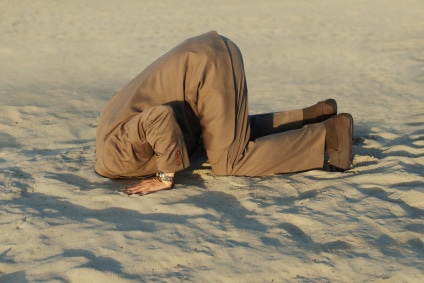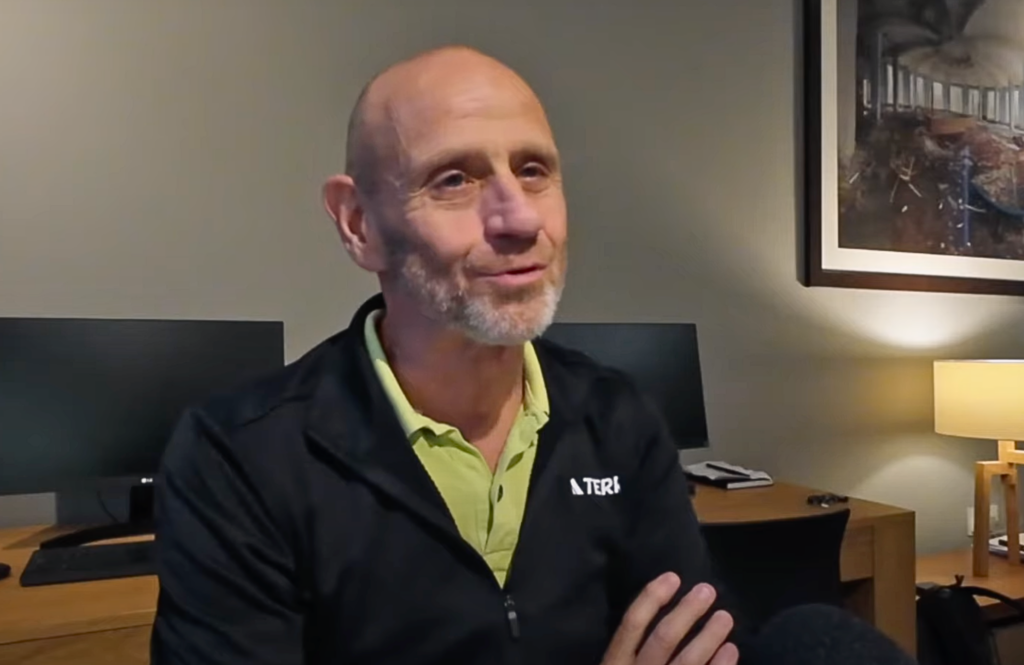Today we’ll look at two more of the (supposedly) bullet-proof points in Joanne Nova’s “The Skeptics Handbook.”
“Professional Speaker” turned climate expert Nova rehashes two of the more common skeptic talking points, that: the world is no longer warming and the Vostok ice core record proves that rising CO2 emissions are not the cause of warmer temperatures.
As skeptics love to point out, the planet has not appreciably warmed over the last decade even though carbon dioxide levels have greatly increased. While it’s true that surface temperatures have remained essentially flat over the last 10 years, taking such a myopic view of the temperature record obscures the much more meaningful long-term trends.
Indeed, if you look at the temperature record of the last 150 years or so, you’ll find it extremely hard not to notice the obvious upward trend (there’s a reason why the nine warmest years on record have all occurred between 1998 and 2008).
You’ll notice that I specifically mentioned surface temperatures; that’s because the datasets that look at surface warming (those developed by the UK Met Office Hadley Center) are only one aspect of this complicated picture. If you were to look instead at other datasets, such as NASA’s, which include the Arctic Ocean (the area of the planet that has been warming the fastest) in their measurements, then you’d see that there hasn’t been a cooling trend since 2003.
In fact, 2005 was the warmest year on record, with 1998 and 2007 tied for second place. Yet even the NASA datasets, which assume that the Arctic Ocean’s surface temperature is roughly the same as that of nearby land-based stations, probably underestimate the degree of warming.
The real measure we should be keeping a close eye on is how much heat the oceans are absorbing. And, wouldn’t you know it, their heat content has steadily increased since 1999. That’s a problem because, as Real Climate’s Gavin Schmidt explains, ocean heat content trends reflect “the planetary radiative imbalance” – that the planet is absorbing more heat from the sun each year than it is losing.
Oceans exert a moderating influence on the climate by soaking up extra heat; therefore, if they take in a little more heat then usual, surface temperatures will tend to fall slightly (even though the planet’s overall heat content is going up). On the other hand, if the oceans absorb less (something that could happen more often if we keep the heat on), surface temperatures will increase.
But, wait, skeptics will say: All of that is beside the point because the Vostok ice cores have now clearly demonstrated that temperature leads CO2 – so rising CO2 emissions can’t be blamed for higher average temperatures. Not quite.
“The strongest evidence for the radiative effect for CO2 (and CH4, N2O, etc) is from laboratory experiments,” said Dr. Schmidt. “The strongest evidence for a significant climate sensitivity is from the Last Glacial Maximum (LGM), when ice sheets covered the planet (about 20,000 years ago), and that has not changed.”
The lead/lag issue that Nova is referring to is only evidence of a strongly coupled system – not evidence that CO2 has no effect, he explained. As Dr. Dessler notes:
“What most scientists think happens is that the orbital variations cause a small initial warming. This small initial warming leads to CO2 being released, which then leads to further warming.
Thus, CO2 indeed lags the initial warming. However, that does not mean it’s not playing a crucial role in the warming. In fact, its role in warming is pivotal.”
The difference now is that CO2 has become a “forcing,” he says. What this means is that humans are now essentially “controlling” the global carbon cycle and causing temperatures to rise by pushing the atmospheric concentration of CO2 ever higher – thus “forcing” the climate.
Anyways, there is a much better argument to explain the CO2-temperature correlation: namely, that none of the other factors that have influenced the climate in the past – tectonic activity, orbital variations, solar variations, volcanoes, internal variability – can do the evident temperature increase justice. Dr. Dessler lays out the case thusly:
“If we look at the warming of the last few decades, we can immediately rule out tectonic activity and orbital variations – they are much much too slow to account for warming over mere decades. We can rule out volcanic eruptions for a similar reason – they affect the climate for only a few years. Thus, volcanic eruptions are also likely unrelated to the several-decades-long temperature increase we are experiencing.
We can rule out solar variability because we have high-accuracy measurements of the output of the sun from satellites since the mid-1970s, and we have not seen the increase in solar output necessary to explain the temperature increase. This is not to say that solar is playing no role, just that it cannot explain the majority of the observed warming.
Internal variability is the hardest to evaluate. We know that ENSO significantly changes the Earth’s temperature, and so long-term ENSO-like variation is something we have to consider. However, nobody has yet put forth a viable mechanism or shown data that such a long-term cycle exists. In the absence of any evidence supporting it, we conclude that it’s likely internal variability is playing a minor role in today’s warming. Clearly, future research might cause us to re-examine this conclusion.
Finally, we have greenhouse gases. In this case, things work out well. Both the timing and magnitude of today’s warming are well-explained by greenhouse gases.
This is why scientists conclude that humans are likely responsible for most of the warming of the last few decades. Greenhouse gases provide a reasonable explanation for the warming, while no other factor can explain the entire warming (though other factors, such as solar, might be playing a minor role).”
Case closed.
Read Part One of Debunking the ‘Skeptics Handbook’: More CO2 Does Worsen Climate Change
Subscribe to our newsletter
Stay up to date with DeSmog news and alerts







